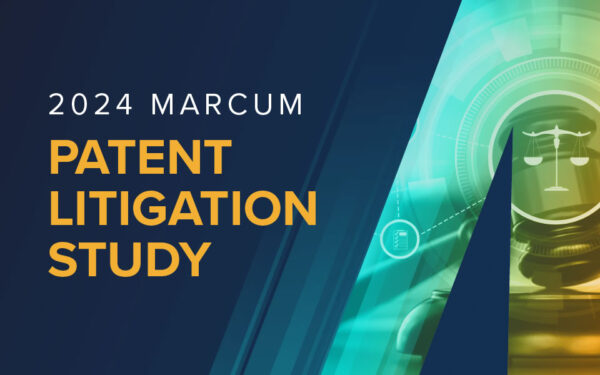After the Transaction – Potential Issues to Consider
Leading up to a merger or acquisition, the focus is on the close. The parties involved are usually laser-focused on making a deal and closing the transaction. This, of course, is the priority leading up to closing. However, closing a deal does not always mean the end of the negotiations or disputes. Rather, many deals include components that may impact the purchase price, or future payouts, after the closing. These post-close events are important for the parties involved in the transaction to understand and be prepared to navigate. There are three primary areas, described in further detail below, where parties to a transaction may have post-close disputes.
1. Working Capital
Purchase agreements may include adjustments related to working capital. Neither seller nor buyer can conclusively predict the precise working capital of an entity at the time of closing. Working capital may fluctuate over even a short period of time due to market, industry, and company-specific reasons. As a result, these clauses attempt to ensure the buyer has sufficient working capital at closing. If the working capital is larger or smaller than anticipated, a post-close payment adjustment may occur.
Working capital is defined as current assets less current liabilities. While this seems simple, it is often subject to dispute. Purchase agreements may define working capital as being calculated in different manners, such as based on generally accepted accounting principles (“GAAP”), consistently applied (i.e., in line with the company’s historical practices), or the combination of the two – GAAP consistently applied. But what happens if the company’s consistent recording of current assets and current liabilities was not in accordance with GAAP? Buyers and sellers may then find themselves in a post-acquisition dispute.
Even a working capital calculation that needs to be in accordance with GAAP may result in disputes, as accounting estimates are a part of GAAP. Components of the working capital calculation – (i) inventory and a reserve for obsolescence, and (ii) accounts receivable and an allowance for doubtful accounts – are areas of significant judgment. The buyer and seller in a transaction may use accounting estimates and make different, reasonable judgments.
When analyzing differing working capital calculations, accounting and advisory professionals will consider the company’s accounting policies while examining how transactions were historically recorded. Additionally, it may be helpful to compare estimates to actual results. For example, was the inventory reserve consistent with inventory write-offs? How did the allowance for doubtful accounts compare to collections? However, one must be careful when considering post-closing data, as the most relevant information will be what was known or knowable at the balance sheet date or the date of the working capital calculation.
2. Earnouts
Another type of post-acquisition dispute relates to the calculation of earnout payments. Earnout clauses in purchase agreements allow the seller to obtain additional payment beyond the purchase price if certain financial metrics are met after closing the transaction. Disagreement in how an earnout is calculated and whether an earnout payment needs to be made, may be due to imprecise language in the purchase agreement.
Similar to working capital disputes, the purchase agreement may reference “GAAP, consistently applied.” However, many adjustments may need to be considered when calculating whether an earnout has been earned, such as transaction costs incurred by the company, components of operations discontinued after closing, and amortization of goodwill from the transaction. A dispute may result if the purchase agreement does not indicate whether adjustments such as these are to be made when calculating an earnout.
When evaluating an earnout dispute, accounting and advisory professionals will consider if the buyer operated the company consistent with the seller’s past practice and if doing so would have allowed the earnout requirements to be met. Events that may be considered when evaluating this post-acquisition period may include whether the buyer:
- Failed to invest in the business.
- Failed to pursue other sales opportunities.
- Deviated from operating norms.
3. Representations & Warranties
Another area of potential dispute post-acquisition relates to representations and warranties. Purchase agreements will generally include a representation by the seller that the financial statements are presented in accordance with GAAP. Due to the above-described accounting disputes or estimates, this may result in the buyer calling into question whether the seller’s representations were accurate. If the seller has cause to believe that those representations were inaccurate and that the financial statements were not in accordance with GAAP, this could result in a dispute.
When evaluating allegations of inappropriate representations and warranties, accounting and advisory professionals will analyze due diligence reports, internal financial documents, communications / memorandums, board of directors meeting minutes, financial projections, and other relevant financial details.
For post-acquisition disputes, the parties involved in a transaction will need to work with their advisors – including attorneys and accountants – to seek a resolution. Purchase agreements often include accounting arbitration clauses that specify how disputes are to be handled through an arbitration process. Even in these cases, which would result in a binding decision, the parties may benefit from engaging an accounting or advisory professional to assist in preparing for arbitration.
Buyers and sellers may benefit from consulting with an advisor who understands accounting, provides professional advice, helps understand the strengths and weaknesses of the case, calculates damages, prepares a report to clearly outline the position being taken, and can even serve as the arbitrator.
Marcum’s advisory practice can assist organizations in understanding and evaluating post-acquisition disputes, as well as preparing reports or arbitration decisions. Contact your Marcum advisory professional for assistance.
Sources
The Comprehensive Guide to Economic Damages, Seventh Addition, Edited by Jimmy S. Pappas, William Scally, and Steven M. Veenema, 2023, Chapter 47: Post-Acquisition Disputes and Related Damages.




















